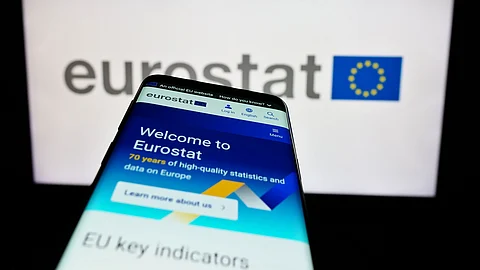

Eurostat would be able to compile statistics on catches and the Union's fishing fleet without having to request additional reports from Member States.
Photo: Adobe Stock.
This week, the European Commission presented a proposal to simplify the collection and compilation of statistics on European fisheries and aquaculture. If approved, the current five existing sets of rules will be replaced by a single, simplified, and integrated system that will reduce the reporting burden on Member States.
With the aim of improving their relevance by more effectively meeting user needs, the new system will allow, for example, the reuse of administrative data already collected by the European Commission for the production of official European statistics on fisheries and aquaculture.
This will enable Eurostat to compile statistics on catches and the Union's fishing fleet without requiring additional reports from Member States, thereby eliminating duplication and saving time and resources.
In addition, it also expands statistical coverage, introducing for the first time the collection of data on discarded catches, recreational fisheries, sensitive species, landings from third-country fleets in EU ports, and organic aquaculture production.
Another feature of the proposal is that it addresses quality issues in the reported data and also reduces the volume of confidential data, thus furthering the transparency line that the EU began earlier this year when, in February, it published annual fishing statistics for the first time.
According to the European Commission's release, the new data structure will also enable more aggregated figures to be compiled and transmitted to international organizations in order to promote global cooperation.
Both Valdis Dombrovskis, Commissioner for Economy and Productivity, Implementation and Simplification, and Costas Kadis, Commissioner for Fisheries and Oceans, have commented on the proposal, which has been drafted by the Directorate-General for Maritime Affairs and Fisheries (DG MARE), responsible for developing, implementing and evaluating the Common Fisheries Policy in support of Europe's food security, as well as leading the coordination of the European Ocean Pact.
"With this proposal, the process of data collection on fisheries and aquaculture across the EU will be simplified and the statistics will be made more accessible and usable by everyone. By smartly reusing existing data, we are ensuring that EU policies are better informed and more efficient to support sustainable prosperity," said Valdis Dombrovskis.
"This proposal will not only improve the quality and availability of fisheries and aquaculture data but also reduce the administrative burden on Member States. It will allow us to make more informed decisions and support the long-term sustainability of our fisheries more efficiently," Costas Kadis added, in the same vein.
